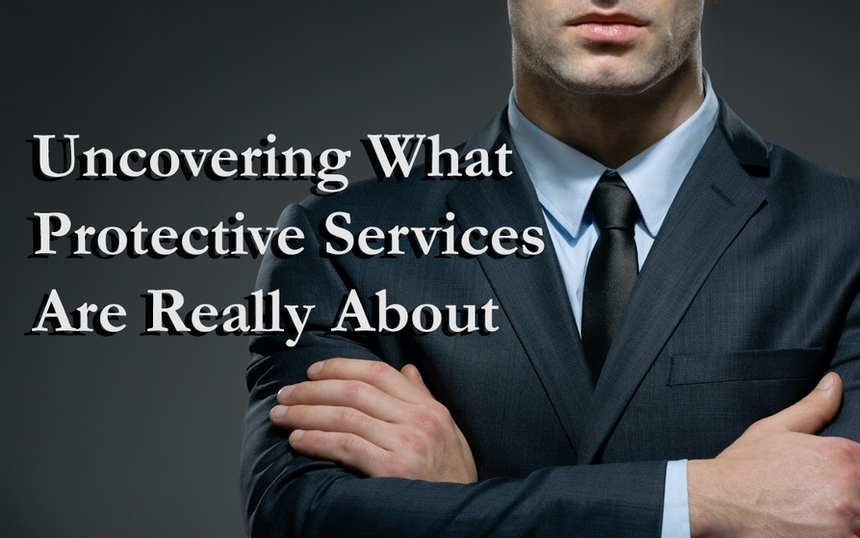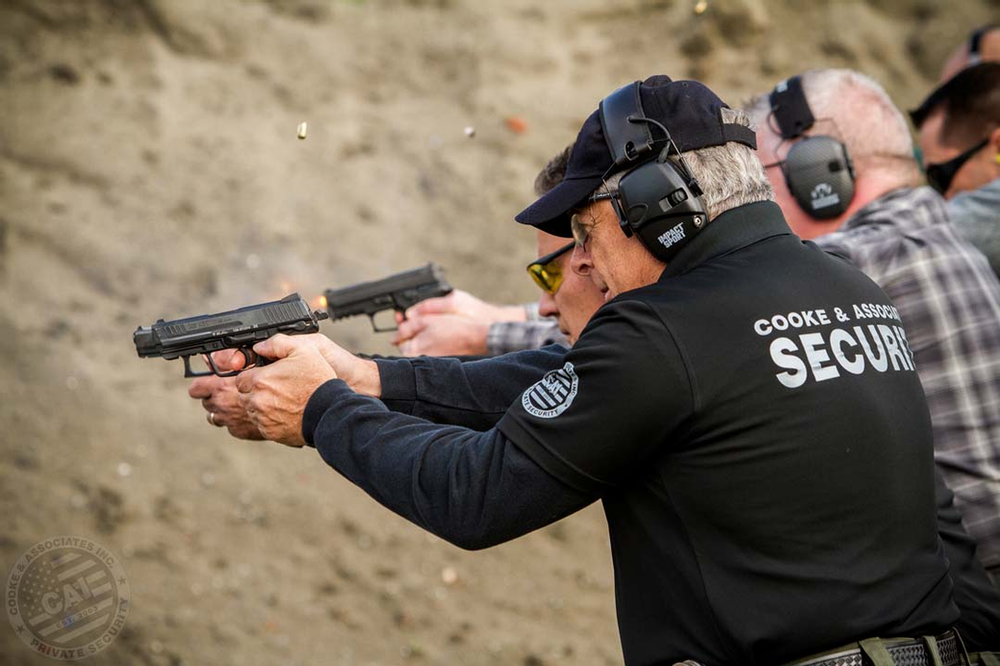As we continue on with our commitment to provide readers with relevant industry information, we begin to look at protection programs. In this article, we will be discussing benefits and how protection programs play a substantial role in the areas of ultra-high net wealth individuals and families, private offices, and corporations.
What Are Protective Services?
Hollywood’s portrayal of protective services in movies such as Man on Fire and The Bodyguard have led to the common misconceptions of what protective services entail. The perceived image of a hulking bodyguard hovering over an executive to intimidate anyone in close proximity is far from the reality of what protective service professionals offer. As times continually evolve, the protective services industry and its definition has evolved as well.
At CAI, we define protective services as:
“A variety of proactive and tested safety and security measures employed by a security professional to ensure one’s safety, security and productivity in a complex and ever changing environment.”
Today, protective services encompass far more than just a physical presence of a security guard. Professional protective services focus on identifying and understanding risks, then mitigating these risks through a holistic approach. More and more individuals and companies are understanding and accepting protective services as a necessary cost of doing business and realize that the benefits of a professional program outweigh the relatively minor cost associated with it.
Why Are Protective Services Needed?
For most clients in the United States, threats are less likely to come in the form of an assassination attempt, but are far more likely to come from a robbery, an act of violence from a disgruntled employee, harassment, a kidnapping attempt of a family member, or an event causing public embarrassment.
Many prominent high net worth individuals are aware that they face unique challenges that differ from those that the average person may face. As visibility and prominence increases, it becomes more difficult to go about daily routines as a “normal” person. But like everyone else, these individuals want to be able to have the same freedom to move about, conduct business, and have their family do the same all the while being safe and secure.
Whether you’re a CEO of a Fortune 100 company, a philanthropist or an ultra-high net wealth family, your vulnerability is increased for many reasons including your wealth, the nature of your business, your prominence in the community, where you travel, and in some cases your political views.
At CAI, we often hear the following phrases:
- “Nothing has happened; we don’t need security.”
- “I’m not in the public spotlight enough to need security.”
- “There’s a security guard in the building lobby, we don’t need anything more.”
- “I want to be normal like everyone else and I don’t want any special attention.”
The decision to have protective services is far more reaching than those statements. When we hear those statements, we strive explain to the person that they are not normal as they hold a position within their organization or community which comes with increased exposure, responsibility, and authority.
To further our point, we then ask some very basic risk and vulnerability associated questions:
- Should something happen, what would be the impact to you, your organization, your shareholders, or your brand?
- What is the probability of that something happening?
- What have you done to mitigate that risk?
- Has this risk been mitigated in a way which impacts you or the organization and results in less productivity or a financial cost?
- Can you alone, without a security professional, mitigate that risk?
- With Duty of Care in mind, are you exposing your employees in any way?
- What does the board mandate?
- Does your business continuity plan include security?
What Kind of Protective Services Are Available?
Protection does not have a one model that fits each approach. Protective services come in many different forms. Some forms include highly complex secret service details offered to presidents, covert security details of corporate executives, security drivers, and protective staff at family offices and residences.
Residential Security
The internet and social media has made a once private life far more public. As a result, ultra-high net wealth families have increased their security posture so they can reduce exposure, keep their private time private, and have their home a safer place for their family.
Unlike traditional overbearing and unprofessional guards meant to intimidate, modern day residential protective agents are much more delicate. When it comes to having protective services at home and around family, highly trained security professionals will not only maintain safety without being intrusive, but will also partner with operational staff to add value.
As part of a residential security program, agents provide other essential functions to a residential operation such as access control and monitoring of the primary residences and secondary properties, driving, staff assistance, vendor and visitor management, and construction security.
Family & Private Offices
In recent years, we have seen an increase in Family and Private Offices which have implemented a protective services program to their operation.
Although many offices attempt to remain private, their wealth, their investments in high profile projects, and their philanthropy greatly increases their exposure and probability of a security related incident. Many offices receive unsolicited contact by individuals who want to be associated with a wealthy, well-known person or prominence.
While office staff often start out with responsibilities focused on financial matters (wealth management, real estate acquisitions, philanthropy etc.), we often see staff taking on additional duties and roles relating to areas such as estate management, travel, and personal assistant tasks. In working with many executive and personal assistants over the years, we have discovered that more often than not, many overlook or don’t even consider risks associated with these tasks.
A sample of a few risks associated with these functions include:
- The lack of background services for new hires and appropriate vetting of vendors
- Identifying and addressing discreet and overt threats
- Exposure to risk while traveling
- Social engineering
- Privacy controls
- Cyber attacks
Corporate
Over the years, workplace violence incidents have increased in corporate settings, thus, the use of protective service agents in corporate offices has expanded proportionately. Due to many public incidents such as the YouTube shooting, the Virginia Beach Municipal mass shooting, and the Molson Coors Disgruntled Employee shooting, corporations have found extreme value in utilizing highly skilled professional protective agents to augment their uniform security program. These security experts are trained to proactively mitigate risk and respond to active shooter and workplace violence matters. Corporate agents are trained to assess and either address a threat or utilize de-escalation methods to reduce potentially volatile situations. Many times, this can be accomplished without using physical force, which is unanimously preferred by HR and legal departments. This is opposite to the traditional response of commonly used uniform guards which are trained to simply “Observe and Report”.
A common approach is to strategically place corporate agents on the floors of executive offices, C-Suite lobbies and in various locations throughout larger campuses. Often times these agents are dressed in clothing similar to what an employee would wear with the intent of blending into the environment. In some cases, these agents will also provide support services to receptionists, executive assistants, HR, legal and facilities teams.
Secured Travel Support
Time is a commodity that you can’t get back. Studies report that the average executive:
- Works 9.7 hours a day.
- 79% have spent 4 hours or more on Saturday and Sundays to conduct business.
- 70% have worked an average of 2.4 hours each vacation day.
- 47% conducted work at their corporate office while the rest conducted work on the road visiting other office locations, meeting external partners, commuting, traveling, and while at home.
As corporations expand their global markets, ultra-high net wealth families acquire properties, and philanthropists look to invest abroad, travel among these groups is a must. And like you and I, everyone wants to spend less time getting to their destination and more time being productive.
A robust travel support program is essential to any professional protective services program. Services can range from simple monitoring of travel arrangements to providing logistical support to staff and protective agents traveling with the executive.
According to CDC data, a recent Global Business Travel Association survey found that 45% of business travelers called terrorism their greatest safety concern, yet motor vehicle accidents are actually the #1 killer of healthy U.S. citizens. When implementing an effective security program that includes a security driver, executives gain an increased sense of security as well as increased levels of productivity.
Simply put, today’s security driver doesn’t just provide transportation.
The average executive in a major metropolitan city commutes an average of one hour each way to and from work. This equates to 10 hours per week and a total 40 hours each month. When taking a one month vacation into account, executives spend more than 480 hours each year commuting. This means that if an executive drives themselves, there is a loss of nearly 500 hours of time each year. With the implementation of a secured transportation program, those 500 hours could be reprioritized and reallocated towards accomplishing more business related tasks or to simply use to relax and recharge.
With a professional service, the driver is not only vetted but experienced in securely transporting people, trained to provide medical support during critical incidents, and often times trained to provide support to executive staff. This is all accomplished without the risk of an unsecure vehicle or driver. Using a rideshare service might be tempting, however these vehicles are not a secure method of transportation. Rideshare services require the individual to get into a car with a stranger, putting themselves at risk, and potentially sharing confidential information if they answer a private phone call.
What Makes a Successful Program and What are the Benefits?
A successful protection program not only provides a safe and secure environment, but also provides peace of mind as well and enhanced levels of productivity. A protective service agent’s role has evolved over time, and these professionals are now able to seamlessly integrate to become part of a fully functioning operational support staff.
Transparency, partnership, and process development are all elements that enable clients to be safe, secure, and productive in any environment. As in any organization or home, there are many facets to consider and a variety of dynamics to go along with each one of these elements.
Working with clients to get a better understanding of their needs and explaining various options of coverage is a great way to highlight the differences needed to balance between providing security and maintaining client privacy. No two programs are alike, so it is essential to develop a customized program for each individual.
As the program develops so does the partnership with key stakeholders. Any professional will tell you, a partnership with key staff members such as executive assistants, personal assistants, office managers and estate managers is essential. Today, an agent will be most successful when they collaborate, show value to the operation, and contribute to the entire staff’s success. Assisting staff with simple tasks such as management of vendor access during projects, backgrounds on new staff and vendors working onsite, inventory and maintenance of life safety systems, assisting visitors, and managing deliveries are just a few areas where agents add value to an operation.
A professional protective agent goal is to gain the trust of the principal as well as the staff. Proving to be a trusted source of knowledge and experience well beyond the typical security role is another key to success. Trust encompasses confidentiality and the different layers of access to information.
Stay tuned for our next article where we discuss how to identify what type of protective service you need and explore the various steps to developing an effective protective service program.


